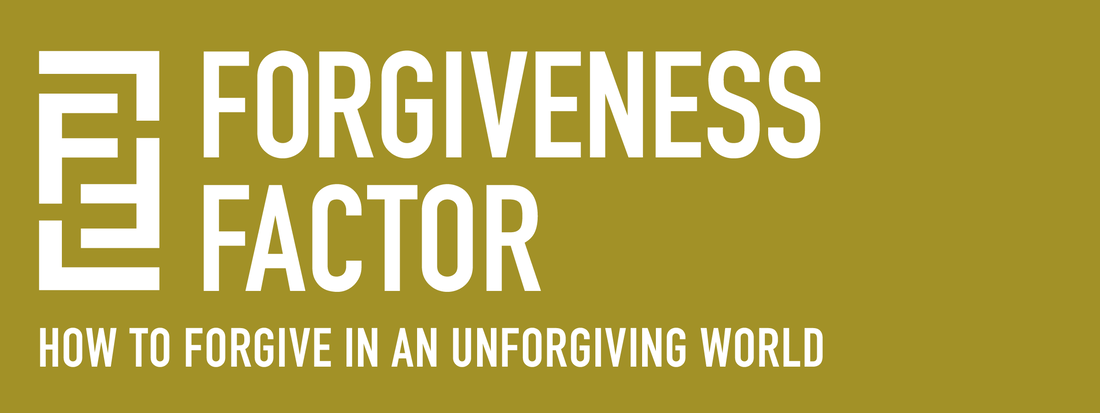Archive for April, 2021
How is Hockey Related to Forgiveness?
EDITOR’S NOTE: This blog is reposted from Forgiveness Factor, the website of Tim Markle, a contributing writer and speaker for the International Forgiveness Institute (IFI). Markle says his two major aspirations in life are “helping individuals with developmental disabilities and educating people about the benefits of forgiveness.”
I like watching ice hockey. Live is best (if I could afford it and if there was not a worldwide pandemic), but I also enjoy watching it on TV. When I watch other sports, I think to myself, “I could throw or run a football, I could catch a baseball, I could kick a soccer ball, I could dribble a basketball–nowhere near the level of proficiency of a, well, 7th grader, but I could do it.” But hockey–not a chance.
There is so much about hockey I could never do. Let’s just start, and end, with skating on ice. Not going to happen. As I watch the games, I see hard hits, slap shots, precise passing. But what brought forgiveness to mind was watching someone skate the puck up the ice as they were constantly poked, prodded, slashed, blindsided, bothered and battered just for doing their job.
Sometimes forgiveness is hard because it feels like we are being constantly poked and reminded of the pain some else caused. We can be blindsided by a memory or prodded by anger.
The hockey player keeps his feet moving, his stick moving, the puck moving and keeps his eyes on the goal. It can be the same with us. When life wants to bounce us around, keep moving forward. Remember the goal of forgiveness. Remember the rewards of the goal are less anger, less anxiety, less depression, less stress, more confidence, more joy, and a better quality of life. Keep your eyes on the goal, keep moving forward and if you get knocked down, get back up and find that puck.
ABOUT THE AUTHOR: Tim Markle is an Outreach Specialist at the University of Wisconsin-Madison Waisman Center. In his various capacities, Markle works to improve the lives of children and adults with developmental disabilities and neurodegenerative diseases, some of life’s most challenging conditions. He also develops curriculum for a variety of audiences, provides training for both children and adults, and is a prolific speaker.
 Markle has a BA in Psychology from Bowling Green State University, a Masters in Counseling (MC) from John Carroll University, and a Master of Arts in Christian Studies (MACS) from Trinity Evangelical Divinity School. As the capstone project for his MACS degree, Markle developed a six-week course that focused on how to forgive and why forgiveness is indispensable for dealing with anger, depression, anxiety and trauma. The course is based on the ground-breaking work of Dr. Robert Enright, co-founder of the IFI. Markle is also the founder of a forgiveness education organization called Forgiveness Factor.
Markle has a BA in Psychology from Bowling Green State University, a Masters in Counseling (MC) from John Carroll University, and a Master of Arts in Christian Studies (MACS) from Trinity Evangelical Divinity School. As the capstone project for his MACS degree, Markle developed a six-week course that focused on how to forgive and why forgiveness is indispensable for dealing with anger, depression, anxiety and trauma. The course is based on the ground-breaking work of Dr. Robert Enright, co-founder of the IFI. Markle is also the founder of a forgiveness education organization called Forgiveness Factor.
In your experience, when do children begin to truly forgive parents who have behaved very badly?
In my experience, people tend to start forgiving parents once the children are emerging into adulthood and are beginning to leave home or have left home. Before that, the child is both very dependent on the parents for basic needs and, when young, does not necessarily have the cognitive insight regarding how deeply unjust the parental behavior is. The young adult can be shocked at the depth of anger and at the seriousness of the parental injustice when looking back. Because of this, the struggle to forgive can take time, but definitely is well worth it. The forgiving might lead to a genuine reconciliation with the parent, if the parent also wishes to reconcile, which, in my experience, most parents want.
Is it justified to forgive the self first before forgiving others?
I am supposing that you have both broken your own standard (needing self-forgiveness) and you have been treated unjustly by others (needing to forgive them). In my experience, it is easier for most people to forgive others because we tend to be harder on ourselves. If this is true in your case, then you might want to start by forgiving others and once this is accomplished, and you know the forgiving path well, you then can apply that learning to forgive yourself.
How do we promote the true meaning of forgiveness, given that there are so many misunderstandings of it?
We have resources to help, such as three self-help books (Forgiveness Is a Choice, The Forgiving Life, and 8 Keys to Forgiveness). We also have forgiveness education curriculum guides for teachers and parents in our Store. With all of these materials, we have tried to be very accurate regarding what forgiveness is and what it is not.
Can witnesses to abuse forgive the abuser even though the witnesses were not the ones harmed? For example, suppose one child is scapegoated in the family. Could a sibling, now an adult, who did not experience the parental wrath forgive the parents?
Yes, the adult child who was not abused can feel free to forgive the parent for abusing the adult child’s sibling. Trudy Govier, a philosopher in Canada, refers to this as secondary forgiveness. The abused child, who wishes to forgive, would be engaging in primary forgiveness.



